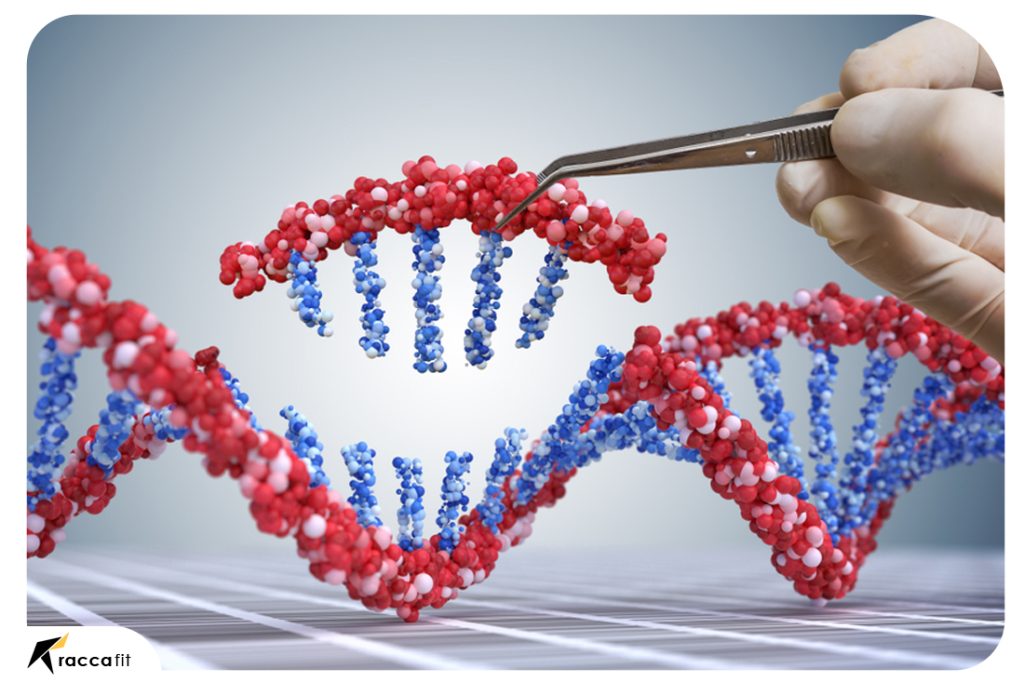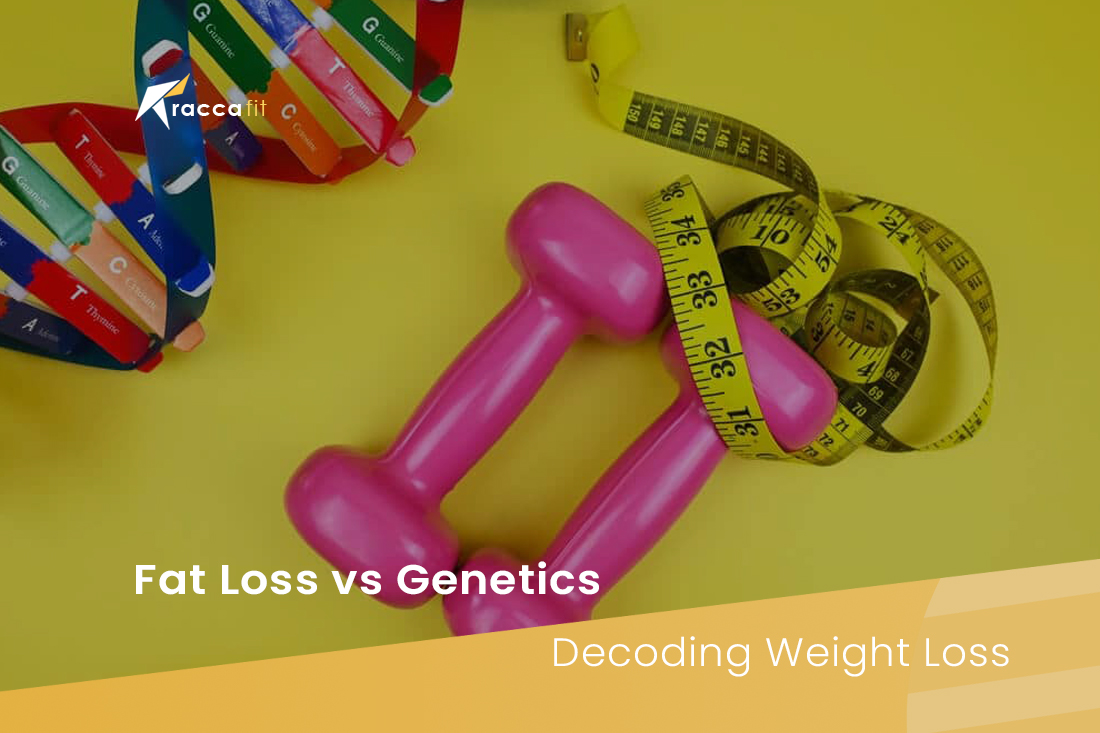Humans have almost the same DNA. But genetic differences determine our personalities, such as hair color, body shape, and even our fat loss ability. Scientists have discovered a whole host of genes linked to obesity, metabolism and fat storage. For example, people with certain variants in the MC4R gene tend to have excess body fat. People with the MC4R gene are 8% more likely to be overweight and 12% more likely to be obese. Additionally, there are many ways genetics can hinder your efforts when you are in the process of fat loss.
secrets of our body that our genetics can reveal
Our genes influence how we react to everything in the world. The tiny genetic mutations that make each of us unique affect everything from eye color and fingerprints to how we use energy and store fat. Appetite, hunger, satiety, eating patterns, meal times, and exercise responses are all influenced by genes, as are other aspects of ourselves, such as mood, sleep habits, inflammation tendencies, and how we manage toxins in our bodies. receive. —all processes that play an important role in weight results. The 3X4 Gene Report is not just what the ‘default mode’ or baseline for a gene is, but how you can fine-tune and adjust certain aspects of your life to influence gene expression and ultimately Provides useful insight into what impacts the desired outcome. Achieve. This approach is more effective and personal because the lifestyle changes you make are based on real science about you.
Fat loss, your appetite and genetics
The “hunger hormone”, ghrelin, stimulates our appetite. Also, if you have certain variants in the FTO gene, you may have higher ghrelin levels and an above-average BMI. Because ghrelin continues to circulate in the body after eating, people with this gene mutation tend to keep eating to satisfy their appetite. This overeating can lead to weight gain and obesity. Sound familiar? what can you do about it? For one, you can increase your consumption of high-protein, high-fiber carbohydrates at breakfast to reduce hormones and improve satiety throughout the day. Switching your intake from saturated to polyunsaturated fats can also mitigate the genetic effects of the FTO polymorphism. It can reduce the effect of genes on weight loss or weight gain. in plain English? Salmon, trout, walnuts, tofu and sunflower oil give the go-ahead. However, coconut, red meat, pastries, and whole milk should be avoided.

What body types responds to various diets
Individuals with a genetic variant of the ADIPOQ gene are more likely to return to heavier weights after a period of low-calorie diet and weight loss. Related. Adiponectin is a protein hormone that helps regulate glucose levels and plays an important role in energy metabolism. Low adiponectin levels increase the risk of intra-abdominal fat (fat stored in the abdomen) and insulin resistance. Together, this could be linked to her type 2 diabetes as well as displaceable weight gain.
ADIPOQ Gene Variant: The Challenge of Maintaining Weight After Dieting
The ADIPOQ gene variant introduces a unique hurdle in the journey of weight management, particularly after undergoing a period of low-calorie dieting. This genetic factor highlights the significance of Adiponectin, a protein hormone crucial for regulating glucose levels and playing a pivotal role in energy metabolism.
Individuals carrying this genetic variant face a distinct challenge—they are more prone to rebounding to heavier weights post-dieting efforts. Adiponectin levels play a critical role in determining the risk of intra-abdominal fat accumulation and insulin resistance. These factors, in turn, may contribute to the development of type 2 diabetes and persistent, displacing weight gain.
Understanding the intricate interplay between genetics and weight management becomes essential for individuals with the ADIPOQ gene variant. As traditional approaches may not yield the expected results, a tailored strategy that considers genetic predispositions is crucial. Exploring lifestyle modifications and dietary adjustments specific to one’s genetic makeup can be a key step in navigating the challenges posed by the ADIPOQ gene variant, offering a more personalized and effective approach to weight maintenance.
fat loss and several factors influencing fat metabolism
The picture of why we gain weight is expanding (along with overall waist measurements), and it turns out that poor diet and a sedentary lifestyle aren’t the only things that keep us from losing weight. I’m here. If it really is as simple as “eat less, move more,” why is your friend eating chocolate chip cookies for breakfast and not volunteering to break a sweat since high school? Can you explain why you put so much effort into staying slim? The answer lies in our genetics. We are genetically slightly different, so there is no one-size-fits-all when it comes to the optimal weight loss approach. Experts understand that weight loss is more than just cutting (or adding) calories.
Is it possible to over come genetics and lose more fat?
DNA contains at least part of the answer to weight gain and loss. Genetic factors make it harder for some people to lose extra pounds, and some dieters with genetic mutations may lose weight more slowly than others. A DNA health check is the best way to find out if a gene is involved in fat loss. Once you know what you’re getting into, you can change your habits, lifestyle, and mindset to overcome your genetic makeup and regain control. Because your genes are only part of the picture. We all need to eat well, exercise regularly, and commit to making healthy choices to stay in shape long term. And these decisions are up to you! If you need help with you diet or workout, we can help you to customize a meal plan or workout plan based on your exact needs and concerns.

what good can genetic test do to Fat Loss
Once you know what causes your weight gain, you can make lifestyle changes to achieve a healthy weight. This lowers body mass index and lowers the risk of many diseases such as high blood pressure and heart disease. Not only are healthier people free from life-threatening diseases, they also have more money. This usually happens because you don’t have to spend that much money on medical bills. Weight management to reduce body fat begins with genetic testing to identify genetic mutations that indicate an increased risk of obesity.
Conclusion
In unraveling the genetic tapestry of fat loss, we’ve explored how our DNA intricately shapes various aspects of our bodies, from appetite to metabolism. The discovery of genes such as MC4R, FTO, and ADIPOQ has shed light on the role of genetics in weight management. Our genes influence not only our physical characteristics but also how we respond to diets, exercise, and overall lifestyle choices.
The 3X4 Gene Report introduces a groundbreaking approach, allowing individuals to fine-tune their lives based on personalized genetic insights. It’s a powerful tool, offering a more effective and tailored strategy for weight management. The interplay between genetics and weight loss is complex, and recognizing genetic variants like the ADIPOQ gene challenges us to rethink traditional approaches.
FAQs
1. Can genetic testing really impact weight loss success? Genetic testing provides valuable insights into your unique genetic makeup, helping tailor lifestyle changes for more effective weight management. It’s a personalized approach backed by scientific understanding.
2. How can I overcome genetic challenges in maintaining weight after dieting? For individuals with the ADIPOQ gene variant, a tailored strategy that considers genetic predispositions is crucial. Lifestyle modifications and dietary adjustments specific to your genetic makeup can enhance weight maintenance.
3. Is there a one-size-fits-all approach to weight loss? No, individuals are genetically diverse, making a personalized approach essential. Understanding your genetic factors allows for targeted strategies that go beyond simple calorie counting.
4. Can genetics really explain why some people struggle to lose weight? Yes, genetic factors, such as those revealed through DNA health checks, play a role in weight loss challenges. Acknowledging these factors enables individuals to make informed decisions about their habits and lifestyle.
5. How can genetic insights save money on medical bills? Understanding genetic risk factors through testing can empower individuals to make proactive lifestyle changes, potentially reducing the risk of diseases like high blood pressure and heart disease, leading to long-term cost savings on healthcare.









3 thoughts on “Fat Loss vs Genetics: Decoding Weight Loss”
Pingback: Intermittent fasting for weight loss: Comprehensive guide - Raccafit
Thank you mate
Pingback: Metabolic Confusion Diet Plan: A Metabolic Revolution